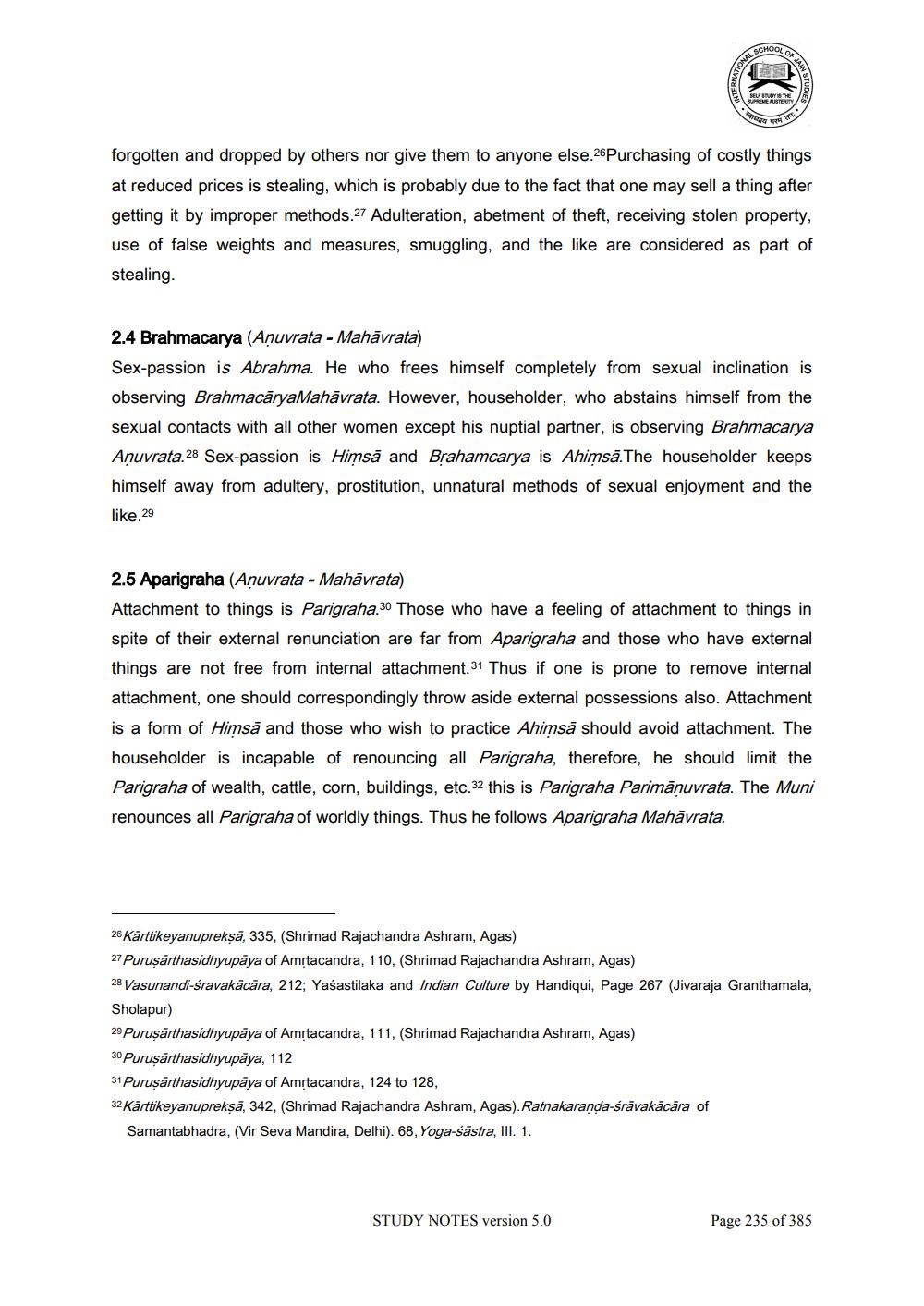________________
पीय परम
forgotten and dropped by others nor give them to anyone else 26Purchasing of costly things at reduced prices is stealing, which is probably due to the fact that one may sell a thing after getting it by improper methods. 27 Adulteration, abetment of theft, receiving stolen property, use of false weights and measures, smuggling, and the like are considered as part of stealing.
2.4 Brahmacarya (Anuvrata - Mahāvrata) Sex-passion is Abrahma. He who frees himself completely from sexual inclination is observing BrahmacāryaMahāvrata. However, householder, who abstains himself from the sexual contacts with all other women except his nuptial partner, is observing Brahmacarya Anuvrata 28 Sex-passion is Himsă and Brahamcarya is Ahimsā. The householder keeps himself away from adultery, prostitution, unnatural methods of sexual enjoyment and the like.29
2.5 Aparigraha (Anuvrata - Mahāvrata) Attachment to things is Parigraha.30 Those who have a feeling of attachment to things in spite of their external renunciation are far from Aparigraha and those who have external things are not free from internal attachment.31 Thus if one is prone to remove internal attachment, one should correspondingly throw aside external possessions also. Attachment is a form of Hims, and those who wish to practice Ahimsā should avoid attachment. The householder is incapable of renouncing all Parigraha, therefore, he should limit the Parigraha of wealth, cattle, corn, buildings, etc.32 this is Parigraha Parimāņuvrata. The Muni renounces all Parigraha of worldly things. Thus he follows Aparigraha Mahāvrata.
26 Kärttikeyanupreksā, 335, (Shrimad Rajachandra Ashram, Agas) 27 Puruşārthasidhyupāya of Amrtacandra, 110, (Shrimad Rajachandra Ashram, Agas) 28 Vasunandi-śravakācāra, 212; Yaśastilaka and Indian Culture by Handiqui, Page 267 (Jivaraja Granthamala, Sholapur) 29 Purusārthasidhyupāya of Amrtacandra, 111, (Shrimad Rajachandra Ashram, Agas) 30 Puruşārthasidhyupāya, 112 31 Puruşārthasidhyupāya of Amrtacandra, 124 to 128, 32 Kārttikeyanupreksā, 342, (Shrimad Rajachandra Ashram, Agas). Ratnakaranda-śrāvakācāra of
Samantabhadra, (Vir Seva Mandira, Delhi). 68, Yoga-śästra, III. 1.
STUDY NOTES version 5.0
Page 235 of 385




